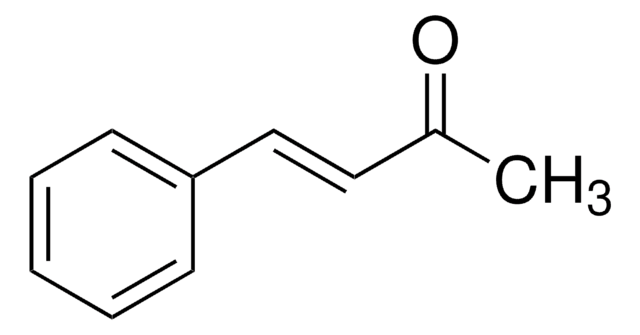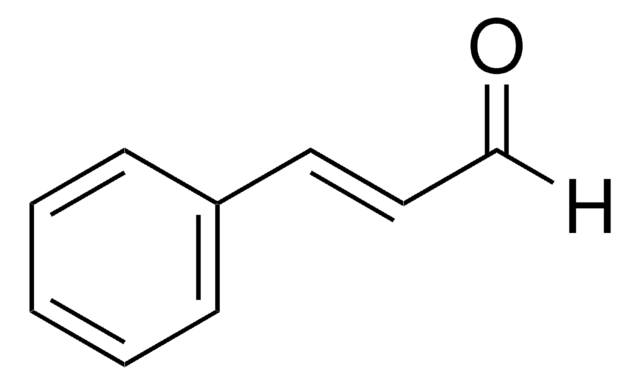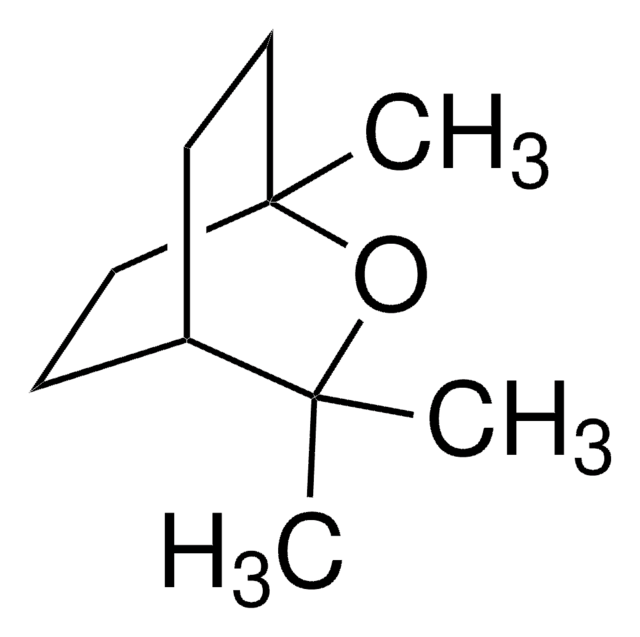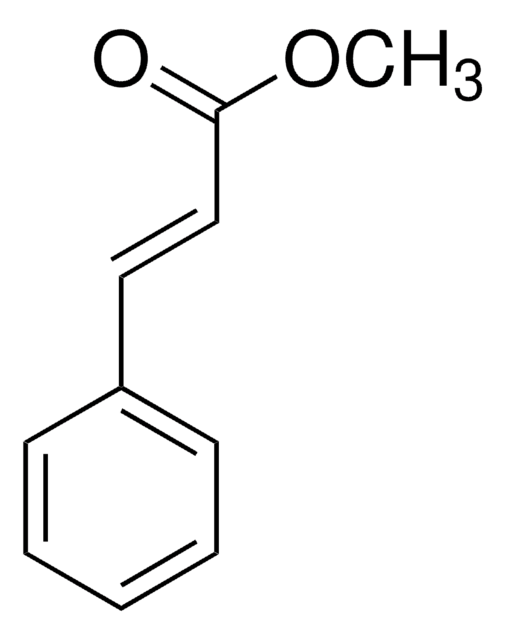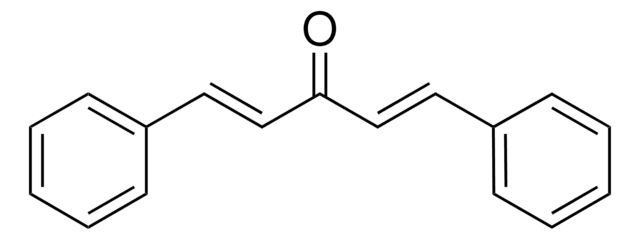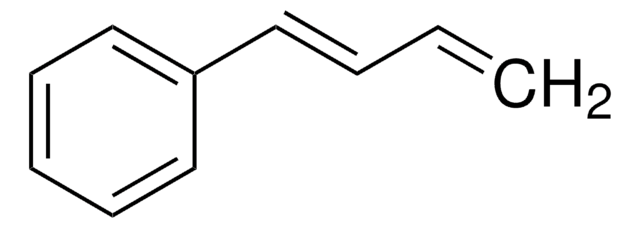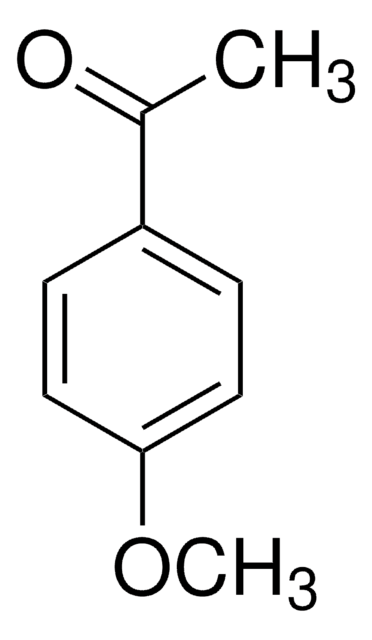W288101
Benzylideneacetone
≥98%, FG
Sinónimos:
Benzalacetone, 4-Phenylbut-3-en-2-one, Benzylideneacetone, Methyl styryl ketone
About This Item
Productos recomendados
biological source
synthetic
Quality Level
grade
FG
Halal
Kosher
agency
meets purity specifications of JECFA
reg. compliance
EU Regulation 1334/2008 & 872/2012
FDA 21 CFR 172.515
vapor pressure
0.01 mmHg ( 25 °C)
assay
≥98%
bp
260-262 °C (lit.)
mp
39-42 °C (lit.)
application(s)
flavors and fragrances
documentation
see Safety & Documentation for available documents
food allergen
no known allergens
organoleptic
anise; cinnamon; jam; balsamic; spicy; floral; sweet
SMILES string
[H]\C(=C(\[H])c1ccccc1)C(C)=O
InChI
1S/C10H10O/c1-9(11)7-8-10-5-3-2-4-6-10/h2-8H,1H3/b8-7+
InChI key
BWHOZHOGCMHOBV-BQYQJAHWSA-N
¿Está buscando productos similares? Visita Guía de comparación de productos
General description
Biochem/physiol Actions
Other Notes
signalword
Warning
hcodes
Hazard Classifications
Skin Irrit. 2 - Skin Sens. 1
Storage Class
11 - Combustible Solids
wgk_germany
WGK 2
flash_point_f
253.4 °F - closed cup
flash_point_c
123 °C - closed cup
ppe
dust mask type N95 (US), Eyeshields, Faceshields, Gloves
Elija entre una de las versiones más recientes:
¿Ya tiene este producto?
Encuentre la documentación para los productos que ha comprado recientemente en la Biblioteca de documentos.
Los clientes también vieron
Nuestro equipo de científicos tiene experiencia en todas las áreas de investigación: Ciencias de la vida, Ciencia de los materiales, Síntesis química, Cromatografía, Analítica y muchas otras.
Póngase en contacto con el Servicio técnico